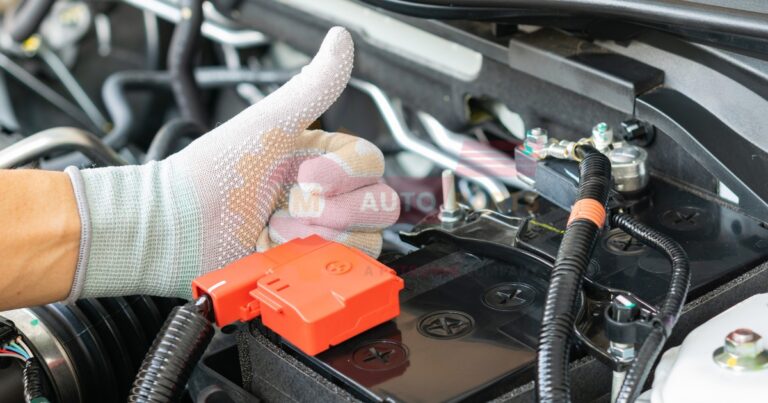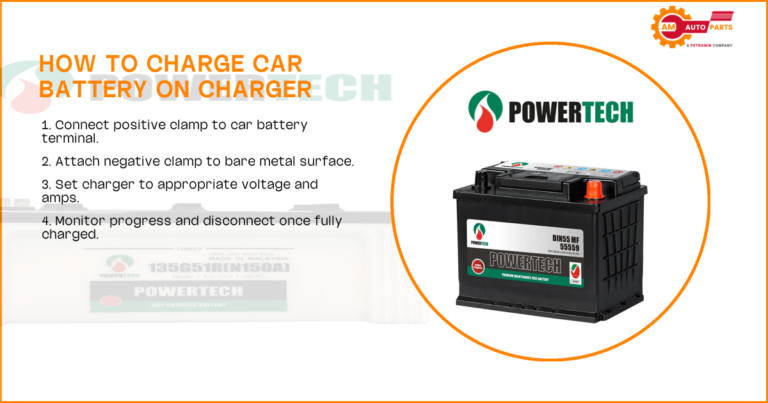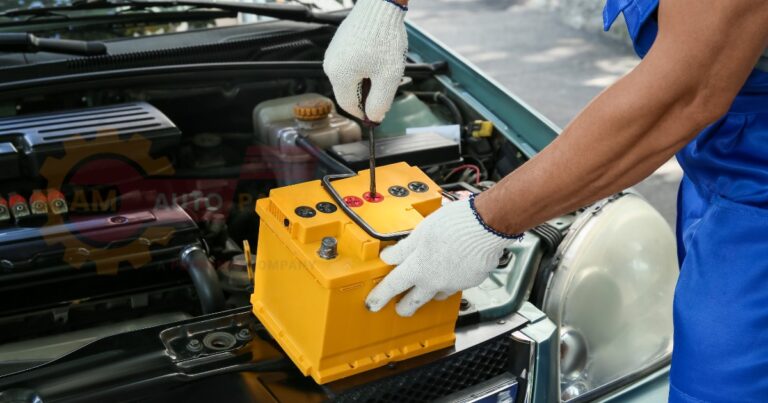What Makes a Car Battery Good?
Car batteries are essential for powering your vehicle’s electrical systems and starting the engine. Understanding how long a car battery is good for, what makes a car battery good, and what car battery is good can help you make informed decisions about maintenance and replacement.
Average Lifespan of Car Batteries
The average lifespan of a car battery is typically between 3 to 5 years. This duration can vary based on several factors, including usage patterns and environmental conditions. Regular maintenance and proper care can help extend the life of your battery, ensuring reliable performance.
- Most car batteries last 3-5 years.
- Lifespan depends on usage and environment.
- Regular maintenance can extend battery life.
Factors Affecting Battery Longevity
Several factors can influence how long a car battery lasts. These include temperature extremes, driving habits, and the quality of the battery itself. High temperatures can accelerate chemical reactions inside the battery, leading to a shorter lifespan, while frequent short trips can prevent the battery from fully charging.
- Temperature extremes affect battery life.
- Frequent short trips can reduce lifespan.
- Battery quality plays a crucial role.
Signs of a Good Car Battery
A good car battery will consistently provide reliable starting power and maintain its charge over time. Look for signs such as quick engine starts, minimal corrosion on terminals, and a stable voltage reading when the engine is off.
- Quick engine starts indicate a good battery.
- Minimal terminal corrosion is a positive sign.
- Stable voltage readings show battery health.
Top Features of High-Quality Car Batteries
When considering what car battery is good, it’s important to look at specific features that indicate quality and reliability.
Capacity and Cold Cranking Amps
Capacity and cold cranking amps (CCA) are critical features of a high-quality car battery. Capacity refers to the amount of energy a battery can store, while CCA measures the battery’s ability to start an engine in cold temperatures. A higher CCA rating is beneficial for cold climates.
- High capacity ensures longer energy storage.
- CCA is crucial for cold weather performance.
- Higher CCA is better for cold climates.
Maintenance-Free Design
Many modern car batteries are designed to be maintenance-free, meaning they don’t require regular topping up of electrolyte levels. This design feature makes them more convenient and user-friendly, reducing the need for frequent checks and maintenance.
- Maintenance-free batteries are user-friendly.
- No need to top up electrolyte levels.
- Convenient for busy car owners.
Durability and Vibration Resistance
Durability and vibration resistance are important for ensuring a long-lasting car battery. Batteries that can withstand vibrations and shocks are less likely to suffer from internal damage, which can lead to premature failure.
- Durable batteries last longer.
- Vibration resistance prevents internal damage.
- Ideal for rough driving conditions.
Extending Your Car Battery’s Life
Proper care and maintenance can significantly extend the life of your car battery, ensuring it remains reliable for years to come.
Regular Testing and Maintenance
Regular testing and maintenance are crucial for keeping your car battery in good condition. This includes checking the voltage, cleaning the terminals, and ensuring the battery is securely mounted. Regular checks can help identify potential issues before they become serious problems.
- Regular voltage checks are essential.
- Clean terminals prevent corrosion.
- Secure mounting reduces vibration damage.
Proper Temperature Management
Managing the temperature around your car battery can help extend its life. Extreme temperatures, both hot and cold, can negatively impact battery performance. Parking in shaded areas during summer and using a battery heater in winter can help mitigate these effects.
- Avoid extreme temperatures for better battery life.
- Park in shaded areas during hot weather.
- Use a battery heater in cold climates.
Avoiding Short Trips and Frequent Starts
Short trips and frequent engine starts can prevent your battery from fully charging, leading to a shorter lifespan. Try to combine errands into one trip and allow your engine to run for longer periods to ensure the battery charges fully.
- Combine errands to reduce short trips.
- Allow engine to run longer for full charge.
- Frequent starts can shorten battery life.
How to Choose the Right Car Battery
Choosing the right car battery involves considering several factors to ensure compatibility and reliability.
Compatibility with Your Vehicle
Ensure the battery you choose is compatible with your vehicle’s make and model. This includes checking the size, terminal type, and voltage requirements. Using an incompatible battery can lead to performance issues and potential damage.
- Check size and terminal type for compatibility.
- Ensure correct voltage for your vehicle.
- Incompatible batteries can cause damage.
Climate Considerations
Consider the climate in which you drive when choosing a car battery. Batteries with higher CCA ratings are better suited for cold climates, while those with higher capacity are ideal for hot environments.
- Choose higher CCA for cold climates.
- Higher capacity is better for hot areas.
- Climate affects battery performance.
Warranty and Reliability
A good warranty can provide peace of mind and protection against defects. Look for batteries with a comprehensive warranty and a reputation for reliability. This ensures you’re covered in case of unexpected failures.
- Look for comprehensive warranties.
- Reliable brands offer better protection.
- Warranty provides peace of mind.
Common Car Battery Problems and Solutions
Understanding common car battery problems can help you address issues before they lead to failure.
Corrosion Prevention
Corrosion on battery terminals can impede electrical flow and reduce performance. Regularly cleaning the terminals with a mixture of baking soda and water can help prevent corrosion and maintain a good connection.
- Clean terminals with baking soda and water.
- Prevents corrosion and maintains connection.
- Regular cleaning improves performance.
Addressing Parasitic Drains
Parasitic drains occur when electrical components draw power from the battery even when the vehicle is off. Identifying and addressing these drains can prevent the battery from discharging overnight.
- Identify components causing parasitic drains.
- Disconnect unnecessary devices when parked.
- Prevents overnight battery discharge.
Jump-Starting Safely
Knowing how to jump-start a car safely is essential in case of a dead battery. Always use quality jumper cables and follow the correct procedure to avoid damaging the battery or electrical system.
- Use quality jumper cables for safety.
- Follow correct jump-starting procedure.
- Prevents damage to battery and system.
The Impact of Driving Habits on Battery Life
Your driving habits can significantly impact the lifespan of your car battery.
Long vs. Short Trips
Long trips allow the battery to charge fully, while short trips can prevent it from reaching a full charge. Combining errands into longer trips can help maintain the battery’s charge and extend its life.
- Long trips charge the battery fully.
- Short trips prevent full charging.
- Combine errands for longer trips.
Frequent Starts in Cold Weather
Frequent starts in cold weather can strain the battery, as it requires more power to start the engine. Allowing the engine to run for longer periods can help reduce this strain and maintain battery health.
- Cold starts require more power.
- Allow engine to run longer in cold weather.
- Reduces strain on the battery.
Electrical Accessory Usage
Using electrical accessories like lights, radios, and chargers can drain the battery if the engine isn’t running. Be mindful of accessory usage to prevent unnecessary battery discharge.
- Limit accessory use when engine is off.
- Prevents unnecessary battery drain.
- Be mindful of electrical usage.
Advanced Battery Technologies
Advancements in battery technology offer new options for car owners seeking improved performance and longevity.
AGM vs. Traditional Lead-Acid Batteries
Absorbent Glass Mat (AGM) batteries offer several advantages over traditional lead-acid batteries, including better performance, longer lifespan, and resistance to vibration. They are ideal for vehicles with high electrical demands.
- AGM batteries offer better performance.
- Longer lifespan than traditional batteries.
- Resistant to vibration and ideal for high demands.
Lithium-Ion Batteries for Cars
Lithium-ion batteries are becoming more popular in the automotive industry due to their lightweight design and high energy density. They offer longer life and faster charging times compared to traditional batteries.
- Lightweight and high energy density.
- Longer life and faster charging.
- Increasingly popular in automotive industry.
Smart Battery Management Systems
Smart battery management systems monitor and optimize battery performance, extending lifespan and improving reliability. These systems can adjust charging rates and provide real-time data on battery health.
- Monitors and optimizes battery performance.
- Extends lifespan and improves reliability.
- Provides real-time battery health data.
Environmental Factors Affecting Battery Performance
Environmental conditions can have a significant impact on battery performance and lifespan.
Extreme Temperatures
Extreme temperatures, both hot and cold, can affect battery performance. High temperatures can accelerate chemical reactions, while cold temperatures can reduce the battery’s ability to deliver power.
- High temperatures accelerate reactions.
- Cold temperatures reduce power delivery.
- Affects overall battery performance.
Humidity and Moisture
Humidity and moisture can lead to corrosion and electrical shorts in the battery. Keeping the battery dry and clean can help prevent these issues and maintain performance.
- Humidity can cause corrosion.
- Moisture leads to electrical shorts.
- Keep the battery dry and clean.
Altitude Effects
High altitudes can affect battery performance due to lower air pressure and oxygen levels. This can lead to reduced power output and shorter lifespan. Car battery performance declines as batteries get older and lose their ability to hold a charge This can make it harder for your car to start especially in cold weather Vehicle Power Specifications tell us how strong a car or truck engine is
Push start automobile Cars with Automotive electrical measurement helps check if car parts that use electricity are working right It uses special tools to test things like batteries wires and lights in vehicles
Automotive power choices include gas engines electric motors and hybrid systems These options give drivers different ways to power their cars and trucks Automotive BMS importance Automotive BMS is crucial for keeping electric car batteries safe and making them last longer It helps manage the battery power so the car can run efficiently and go farther on a single charge
Battery charging problems can make your device stop working
- High altitudes reduce power output.
- Lower air pressure affects performance.
- Shortens battery lifespan.
When to Replace Your Car Battery
Knowing when to replace your car battery can prevent unexpected failures and ensure reliable performance.
Age-Based Replacement
Replacing your car battery based on age is a common strategy. Most batteries should be replaced every 3 to 5 years, even if they appear to be functioning well.
- Replace every 3-5 years based on age.
- Prevents unexpected failures.
- Ensures reliable performance.
Performance-Based Replacement
If your battery shows signs of poor performance, such as slow engine starts or dim lights, it may be time for a replacement. Regular testing can help identify performance issues early.
- Replace if performance is poor.
- Slow starts and dim lights are signs.
- Regular testing identifies issues.
Preventive Replacement Strategies
Preventive replacement involves replacing the battery before it fails, based on usage patterns and environmental conditions. This strategy can prevent inconvenient breakdowns and ensure consistent performance.
- Replace before failure based on usage.
- Prevents inconvenient breakdowns.
- Ensures consistent performance.
FAQ’s
How long does a car battery last without driving?
A car battery can last about two weeks without driving, but this depends on the battery’s condition and the vehicle’s electrical system. If a car is left unused for longer periods, the battery may discharge completely, requiring a jump-start or replacement.
Can a car battery last 10 years?
While it’s uncommon, some car batteries can last up to 10 years with proper care and maintenance. Regular testing, avoiding extreme temperatures, and ensuring the battery is fully charged can help extend its lifespan significantly.
What causes a car battery to die quickly?
Several factors can cause a car battery to die quickly, including extreme temperatures, frequent short trips, and parasitic drains. Ensuring the battery is properly maintained and addressing any electrical issues can help prevent premature failure.






